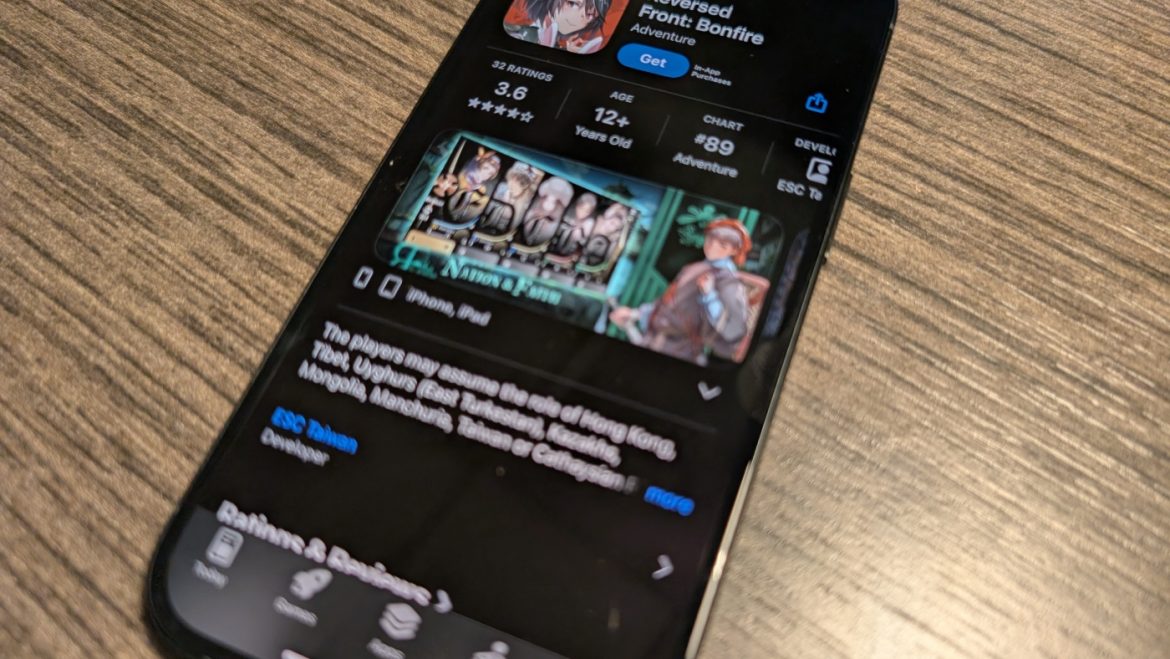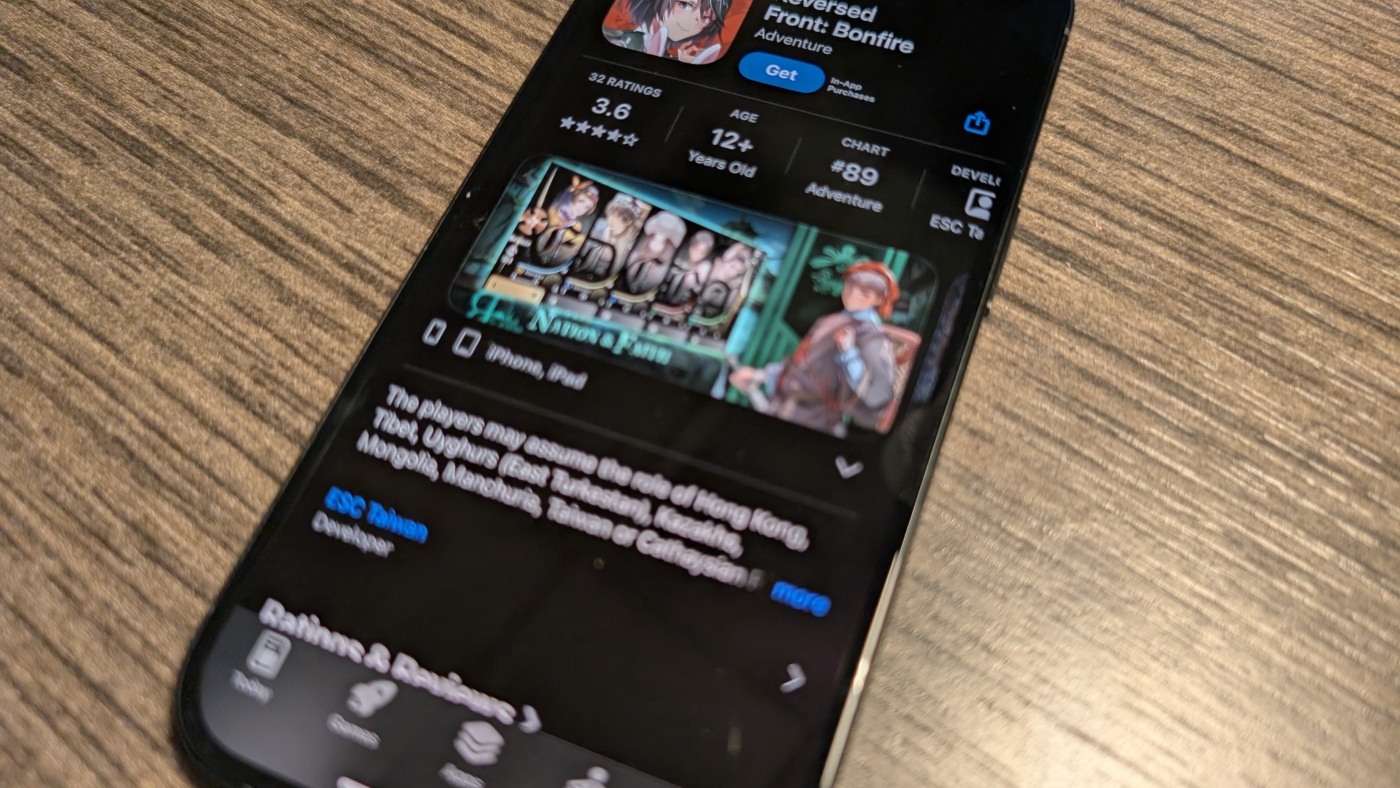The Controversy Surrounding a Hong Kong Mobile Game Accused of Promoting Armed Revolution
Recent reports reveal that Hong Kong police have publicly accused a mobile game app, identified as “Reversed Front: Bonfire,” of promoting armed revolution and advocating secessionist agendas. This public denunciation marks a significant escalation in the region’s ongoing crackdown on dissent, stirring complex issues that blend technology, political expression, and national security. This analysis explores the context, implications, and broader significance of this development.
—
Background: Political Climate and Security Laws
Hong Kong has experienced heightened political tension over the past several years, particularly following the large-scale pro-democracy protests of 2019-2020 and the introduction of the national security law in 2020. This law broadly criminalizes acts perceived to threaten the sovereignty or unity of China, including secession, subversion, terrorism, and collusion with foreign forces.
Against this backdrop, authorities have intensified efforts to curb activities — digital or otherwise — that may encourage dissent or challenge central governance. The accusation against a mobile game signifies that the control measures have extended beyond traditional media or street protests into the digital gaming realm.
—
The Game and Accusations
Authorities claim “Reversed Front: Bonfire” disguises itself as entertainment but actually promotes separatist doctrines, including “Hong Kong independence” and “Taiwan independence.” Police allege that the game advocates for overthrowing China’s fundamental political system through armed revolution. The criminalization extends not only to its creators but also to users who download, share, or promote the game online, raising concerns about freedom of expression in digital spaces.
This move to target a game is unprecedented and signals an expanded scope of national security enforcement — now policing interactive, virtual content. The police have cautioned that engaging with such content risks violating national security laws. Implicit in this warning is a chilling effect on digital participation in politically charged content.
—
Implications for Digital Expression and Gaming
Games are often dismissed as mere entertainment, yet they can represent powerful mediums for political narratives and social commentary. Historically, video games and interactive media have explored various political themes, sometimes sparking controversy.
The Hong Kong police’s stance presses a key question: To what extent can a video game be held responsible for political messaging, especially if it simulates scenarios reflecting real-world conflicts or perspectives? By targeting a game that encourages players to “overthrow the communist regime,” authorities seem to view interactive simulation as a form of political incitement.
Such a crackdown could reshape creative freedom for developers and users alike, leading to increased self-censorship within Hong Kong’s digital sphere. It potentially stifles innovative or critical storytelling under the shadow of state surveillance and suppression.
—
The Broader Context of Eroding Political Rights
Democracy and human rights advocates view this crackdown on a political video game as part of a broader erosion of civil liberties in Hong Kong. Following the national security law’s enactment, the space for dissent has shrunk dramatically, with multiple instances of activists arrested and media outlets closed or censored.
The targeting of a mobile app illustrates how the government is extending control beyond physical protest spaces into digital ecosystems. This intensification reflects the challenges faced by societies balancing digital freedom with state interests in control and political stability.
—
Technology, Platforms, and Responsibility
Beyond Hong Kong’s government actions, there are implications for global technology companies. Reports indicate platforms like Google have removed protest-related apps from their stores in response to requests or policy violations linked to political content. The removal of such apps sparks debates over corporate responsibility, censorship, political neutrality, and the power of tech companies in influencing access to politically sensitive content.
The rapid enforcement actions in the tech sector underline the increasingly politicized role of app distribution platforms and their impact on activism and public discourse.
—
Conclusion: The Clash of Digital Freedom and National Security
The public accusation of “Reversed Front: Bonfire” by Hong Kong police encapsulates the contemporary tensions faced at the intersection of digital culture and authoritative governance. By criminalizing a mobile game for its political content, authorities signal an expansion of the national security framework into virtual and interactive realms — an unprecedented step with profound implications.
This development highlights critical questions: How should governments regulate digital platforms used for political expression? Where lies the boundary between security concerns and freedom of expression in gaming and digital media? The unfolding events in Hong Kong serve as a potent case study on the fragility of digital freedoms under stringent national security regimes.
In the evolving landscape of politically charged digital content, the challenge remains to strike a balance that respects both societal security and the rights of individuals and creators to engage freely with ideas in all forms, including games. Hong Kong’s recent move suggests that, for now, the scales may be tipping decisively towards control and censorship.


